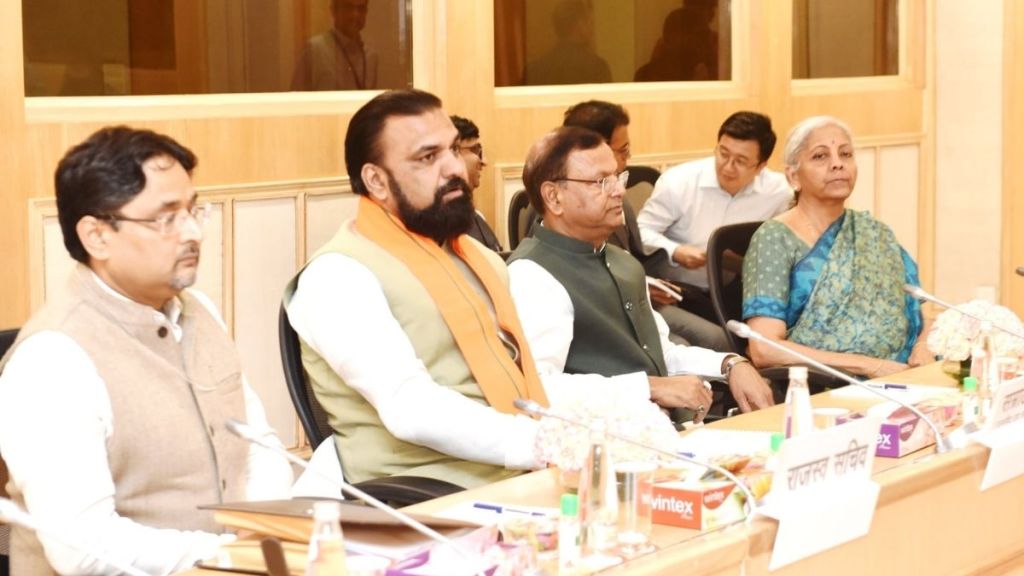The Group of Ministers (GoM) will propose to the GST council to completely exempt the health and life insurance premiums from the Goods and Service Tax (GST) in the revamped regime this Diwali. Bihar Deputy CM Samrat Choudhary, who is convenor of the GoM, told media that the ministers are of the view that all kinds of health and life insurances should be exempted from the GST.
“Everyone expressed that Life and Health Insurance (for individuals) should be exempted from GST. The GST Council will decide,” he said.
#WATCH | Delhi | On the meeting of the Group of Ministers, Bihar Deputy CM Samrat Choudhary says, "Everyone expressed that Life and Health Insurance (for individuals) should be exempted from GST. The GST Council will decide." pic.twitter.com/8p1kMsV2i5
— ANI (@ANI) August 20, 2025
Prime Minister Narendra Modi had announced on Independence Day that the government is all set to revised the current GST rates to bring more relief for the common man. He said the revamped structure would be a Diwali gift for the people of the country.
Will insurance premiums become cheaper?
The Centre’s proposal on insurance is part of the overall next-Gen GST reform proposal under which goods and services tax will be levied at two rates— 5 and 18 per cent — based on categorisation of products as merit and standard. The plan is to do away with the 12% and 28% GST slabs.
In 2023-24, the Centre and states collected Rs 8,262.94 crore through GST on health insurance premium, while Rs 1,484.36 crore was collected on account of GST on health reinsurance premium.
Currently, health and life insurance premium attracts 18 per cent GST. It is being assumed that the tax on insurance premiums could be made zero or 5%.
While it looks like the premium would become cheaper, the industry points out that the reduction could lead to expensive premiums. Veterans in insurance industry pointed out that if the government reduces the GST rates, the insurance companies may not be able to claim the Input Tax Credit. As per the current rules, the GST rate of 5 per cent or zero does not qualify for Input Tax Credit. Read More
Reacting to the development, Mr. Rakesh Jain, CEO of Reliance General Insurance said, “We welcome the government’s proposal to reduce GST on insurance premiums from 18% to 5%, as this will bring much-needed relief to customers and help improve insurance penetration in India. Insurance is not just a financial product—it is a safeguard for individuals, families, and businesses against life’s uncertainties.”
He said that lower taxation would make insurance more affordable, particularly for middle-class households, rural populations, and small enterprises that often perceive premiums as a financial burden.
On the concern of input tax credit, Mr. Jain said, “A key concern is the inverted duty structure, which leads to accumulation of unutilized input tax credits, as insurers are unable to offset taxes paid on many input services that attract higher GST rates.”
He said this mismatch further increases the operational costs, creating financial inefficiencies, and limiting the overall benefit of a GST reduction. “Unless this anomaly is addressed, insurers may continue to face pressure on margins even as customers gain from lower premiums,” he added.
GoM to send proposal to GST council
Now, as part of the procedure, the Group of Ministers (GoM) on life and health insurance will submit its report to the GST Council.
The report will also include views and concerns expressed by some state finance ministers, Choudhary said. “The Centre’s proposal is clear that the individual insurance policies should be exempt from GST. This has been discussed and the GoM report will be presented to the Council,” Choudhary, who is the convenor of the 13-member state GoM on health and life insurance, told reporters.
“All members have given their approval for lowering rates. Some states have given their own views,” he added, further saying that the final call rests with the Council.
The 13-member GoM on health and life insurance was set up in September to suggest tax rates, reported PTI. It includes ministers from Uttar Pradesh, Rajasthan, West Bengal, Karnataka, Kerala, Andhra Pradesh, Goa, Gujarat, Meghalaya, Punjab, Tamil Nadu and Telangana, and has been mandated to submit its report to the GST Council by October end.

